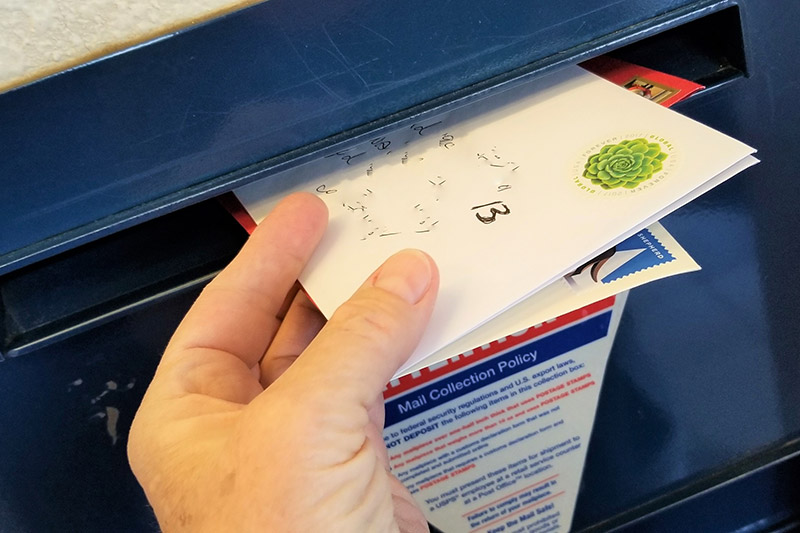In today’s interconnected world, businesses and individuals frequently engage in transactions that span across borders. This globalization necessitates a robust understanding of international requirements for addressing these issues. Accurate address data is crucial for various operations, from shipping goods to validating identities and processing payments. In this blog, we will explore the intricacies of international addressing requirements, the importance of global address verification, and the role of check printing APIs in ensuring seamless cross-border transactions.
The Complexity of International Addressing
International addressing is far more complex than domestic addressing due to the diverse formats and conventions used worldwide. Each country has its unique way of structuring addresses, influenced by language, culture, and administrative practices. For instance, an address in Japan will significantly differ from one in the United States or Germany. Understanding and accommodating these differences is essential for businesses to avoid delivery failures, fraud, and compliance issues.
Key Components of International Addresses
1. Country: The most basic component, identifying the nation.
2. Recipient Name: The individual or organization receiving the mail.
3. Street Address: This includes house number, street name, and sometimes apartment or unit number.
4. Locality: This may include the city or town.
5. Administrative Area: Such as a state, province, or region.
6. Postal Code: Essential for sorting and delivering mail accurately.
7. Additional Details: These can include PO boxes, building names, or other identifiers specific to the country.
Variations in Address Formats
– United States: Addresses typically follow the format of recipient name, street address, city, state, and ZIP code.
– United Kingdom: Addresses often include the house name or number, street, locality (if applicable), town or city, county (optional), and postcode.
– Japan: Japanese addresses start with the largest entity (the prefecture), followed by the city, district, street, and finally the house number.
These variations mean that businesses must be prepared to handle multiple formats and ensure that their systems can accommodate and accurately process each one.
Importance of Global Address Verification
Global address verification is a critical process for any organization dealing with international clients or shipments. It involves validating and standardizing address data to ensure its accuracy and completeness. Here are some key benefits of implementing robust global address verification systems:
Reducing Errors and Returns
Incorrect addresses can lead to undeliverable shipments, resulting in customer dissatisfaction and increased operational costs. Verifying addresses ensures that the data is accurate, reducing the risk of errors and returns.
Enhancing Customer Experience
A seamless and efficient delivery process enhances the overall customer experience. By ensuring that addresses are correct, businesses can avoid delays and provide a reliable service, boosting customer satisfaction and loyalty.
Preventing Fraud
Accurate address verification helps in identifying fraudulent activities. By cross-referencing addresses with official databases, businesses can detect discrepancies and potential fraud, protecting themselves and their customers.
Compliance with Regulations
Many countries have specific regulations regarding address data, especially for financial transactions and shipping. Global address verification ensures compliance with these regulations, avoiding legal issues and fines.
Technologies Supporting Global Address Verification
Several technologies and tools can assist businesses in achieving accurate and reliable global address verification:
Address Verification APIs
APIs (Application Programming Interfaces) allow businesses to integrate address verification capabilities into their systems. These APIs access global address databases to validate and standardize address data in real-time. Examples include Google Maps API, SmartyStreets, and Melissa Data.
Machine Learning and AI
Machine learning and artificial intelligence (AI) technologies can enhance the accuracy of address verification by learning from large datasets and recognizing patterns. These technologies can improve the ability to predict and correct address errors.
Geocoding
Geocoding converts addresses into geographic coordinates. This can be useful for verifying addresses, as well as for logistics and planning purposes. Accurate geocoding ensures that the physical location of an address is correct, aiding in navigation and delivery.
The Role of Check Printing APIs in International Transactions
While addressing is critical for physical deliveries, financial transactions also require accurate address data. One area where this is particularly important is in the use of check printing APIs.
What are Check Printing APIs?
Check printing APIs enable businesses to automate the creation and distribution of checks. These APIs can be integrated into existing financial systems, allowing for seamless check issuance, which is particularly useful for payroll, vendor payments, and refunds.
Importance of Accurate Address Data in Check Printing
For checks to reach their intended recipients, accurate address data is essential. Incorrect addresses can lead to lost or delayed payments, causing frustration and financial strain. Check printing APIs often include address verification features to ensure that checks are sent to the correct addresses.
Enhancing Security and Efficiency
Check printing APIs not only verify addresses but also enhance the security and efficiency of financial transactions. They reduce the risk of errors and fraud by automating the check creation process and ensuring that all address data is accurate and up to date.
Best Practices for Managing International Addressing Requirements
To effectively manage international addressing requirements and leverage technologies like global address verification and check printing APIs, businesses should adopt the following best practices:
Standardize Address Data
Implement systems that standardize address data according to international formats. This ensures consistency and accuracy, facilitating easier verification and processing.
Use Reliable Address Verification Tools
Invest in reliable address verification tools and APIs that can handle global address data. These tools should be regularly updated to reflect changes in address formats and postal codes.
Train Staff on Addressing Conventions
Ensure that staff involved in data entry and customer service are trained on international addressing conventions. This reduces the risk of errors and improves the accuracy of address data.
Monitor and Update Address Data
Regularly monitor and update address data to ensure its accuracy. This is particularly important for businesses with recurring transactions, such as subscriptions or regular shipments.
Leverage Technology for Automation
Utilize technology to automate address verification and check printing processes. Automation reduces manual errors and enhances efficiency, ensuring that all transactions are processed accurately and on time.
Conclusion
In a globalized world, understanding and managing international requirements is crucial for businesses to operate efficiently and effectively. Accurate address data is essential for delivering goods, verifying identities, and processing financial transactions. By leveraging technologies such as global address verification and check printing APIs, businesses can ensure accuracy, reduce errors, and enhance the overall customer experience. Adopting best practices and investing in reliable tools will enable businesses to navigate the complexities of international addressing and thrive in the global market.
Stay tuned for more news & updates on Time Analysis!



